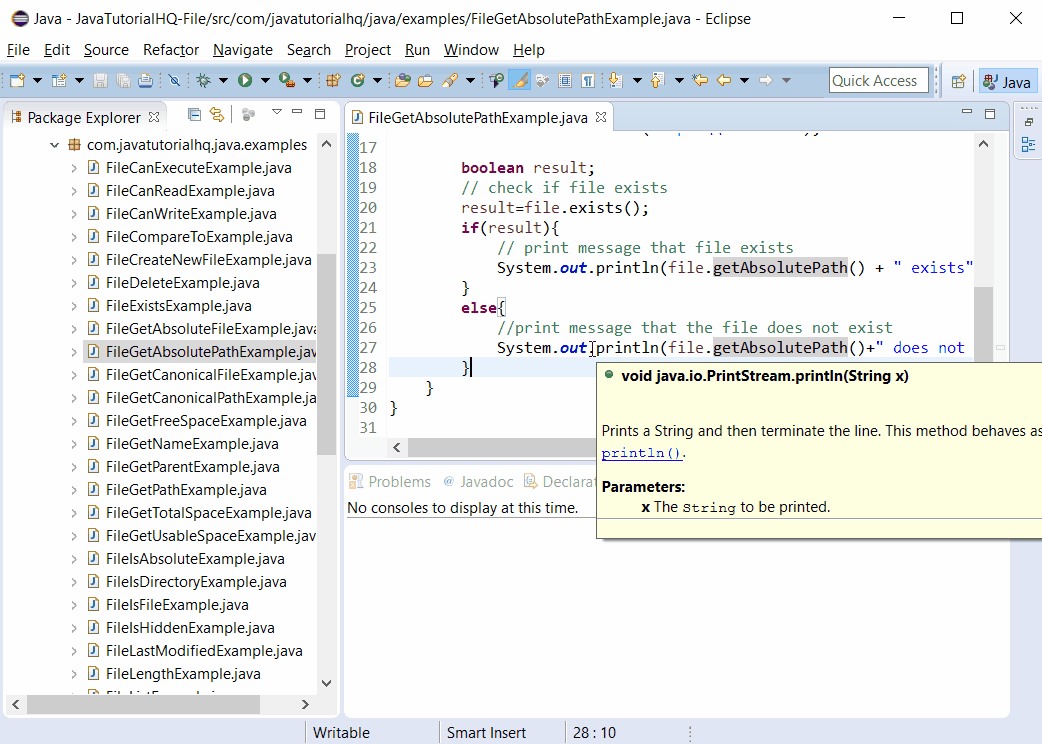java.io.File getAbsolutePath()
Description
Notes:
- If this abstract pathname is already absolute, then the pathname string is simply returned as if by the getPath() method.
- If this abstract pathname is the empty abstract pathname then the pathname string of the current user directory, which is named by the system property user.dir, is returned. Otherwise this pathname is resolved in a system-dependent way. On UNIX systems, a relative pathname is made absolute by resolving it against the current user directory.
- On Microsoft Windows systems, a relative pathname is made absolute by resolving it against the current directory of the drive named by the pathname, if any; if not, it is resolved against the current user directory.
Throws:
- SecurityException – If a required system property value cannot be accessed.
Method Syntax
public String getAbsolutePath()
Method Argument
| Data Type | Parameter | Description |
|---|---|---|
| N/A | N/A | N/A |
Method Returns
This method returns a String which denotes the absolute pathname string denoting the same file or directory as this abstract pathname.
Compatibility
Requires Java 1.0 and up
Java File getAbsolutePath() Example
Below is a java code demonstrates the use of getAbsolutePath() method of File class. The example presented might be simple however it shows the behaviour of the getAbsolutePath() method of File class. Basically we have put a check first if the file exists or not. If the file exists based on the return value of the exists() method, we print the result of the getAbsolutePath() method to illustrate it’s behaviour.
package com.javatutorialhq.java.examples;
import java.io.File;
/*
* This example source code demonstrates the use of
* getAbsolutePath() method of File class.
*
*/
public class FileGetAbsolutePathExample {
public static void main(String[] args) {
// initialize File object
File file = new File("inputtest.txt");
boolean result;
// check if file exists
result=file.exists();
if(result){
// print message that file exists
System.out.println(file.getAbsolutePath() + " exists");
}
else{
//print message that the file does not exist
System.out.println(file.getAbsolutePath()+" does not exists");
}
}
}

